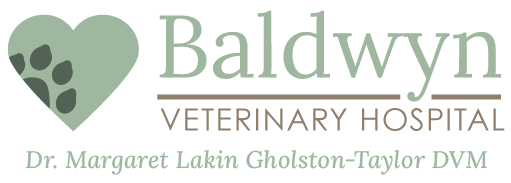Library
-
Do you have medications stored in the bathroom cabinet, kitchen drawer, and pantry shelf? Are random bottles haphazardly tossed into the “pharmacy”? Medications are meant to help us and our pets, but they can do more harm than good if stored or administered incorrectly. You can protect your family and pets by safely handling and disposing of medications.
-
Salicylic acid topical (brand name Solva-Ker®, BioSeb®, Cerasoothe® SA, others) is an antimicrobial and antipruritic (anti-itching) agent used in the treatment of seborrheic (dry or greasy dandruff) disorders in cats, dogs, and other animals. It may be specially compounded and/or combined into a formulation with other medications. It comes in cream, gel, ointment, and shampoo forms.
-
Ophthalmic autologous serum is a blood-derived product used to treat corneal ulcers in animals. Ophthalmic autologous serum is part of the blood and is collected directly from the patient. It is in liquid form.
-
Silver sulfadiazine topical is an antimicrobial used to treat skin infections and burns in cats, dogs, and exotic pets. It is used off label in veterinary medicine. Silver sulfadiazine topical comes in a topical cream.
-
Ferrets commonly develop skin diseases, including infections with parasites (fleas, mites, ticks), bacteria, viruses (distemper), and fungus (ringworm). They are also subject to both benign and malignant tumors, including mast cell tumors. Adrenal tumors also cause hair loss and itchy skin in ferrets. All skin problems should be brought to the attention of your veterinarian, who will recommend the most appropriate treatment for the specific problem.
-
There are many health and behavioral benefits associated with spaying your rabbit, such as preventing unwanted pregnancies, reducing her risk for reproductive cancers, and minimizing the stress associated with sexual frustration. This handout explains the surgical procedure, post-operative care at home, and, although rare, possible complications that may occur.
-
An ovariohysterectomy is often referred to as a spay or spaying. It is a surgical procedure in which the left and right ovary and both left and right horns of the uterus are removed completely, to sterilize or render a female animal infertile. Spaying minimizes the risk of ovarian, uterine, breast, and pituitary gland cancers in rats. Ideally, most rats are spayed between four and six months of age. Complications are rare, but there is a small risk associated with being anesthetized. Most rats will experience no adverse effects and spaying is generally recommended for all healthy, young rats to prevent future health problems.
-
Sucralfate is given by mouth and is used off-label to treat ulcers and erosions in the mouth, esophagus, stomach, and upper small intestine. Give as directed. Side effects are uncommon but may include constipation. Do not use in pets that are allergic to this medication. If a negative reaction occurs, please call your veterinarian.
-
Sugar gliders are small marsupial mammals that are omnivorous eaters, meaning they eat a wide variety of foodstuffs. Items from insects to eucalyptus to gum from the acacia tree may all be consumed to a varying degree. Improper nutrition is one of the most prominent causes of illnesses in sugar gliders. This handout provides the information needed to feed your sugar glider a healthy diet.
-
Sugar gliders are small, nocturnal mammals with a social and curious nature. They are also marsupials, meaning they possess a pouch in which the female raises her young. This handout describes the sugar glider's physical and behavioral characteristics along with recommendations for choosing one to be your pet.



